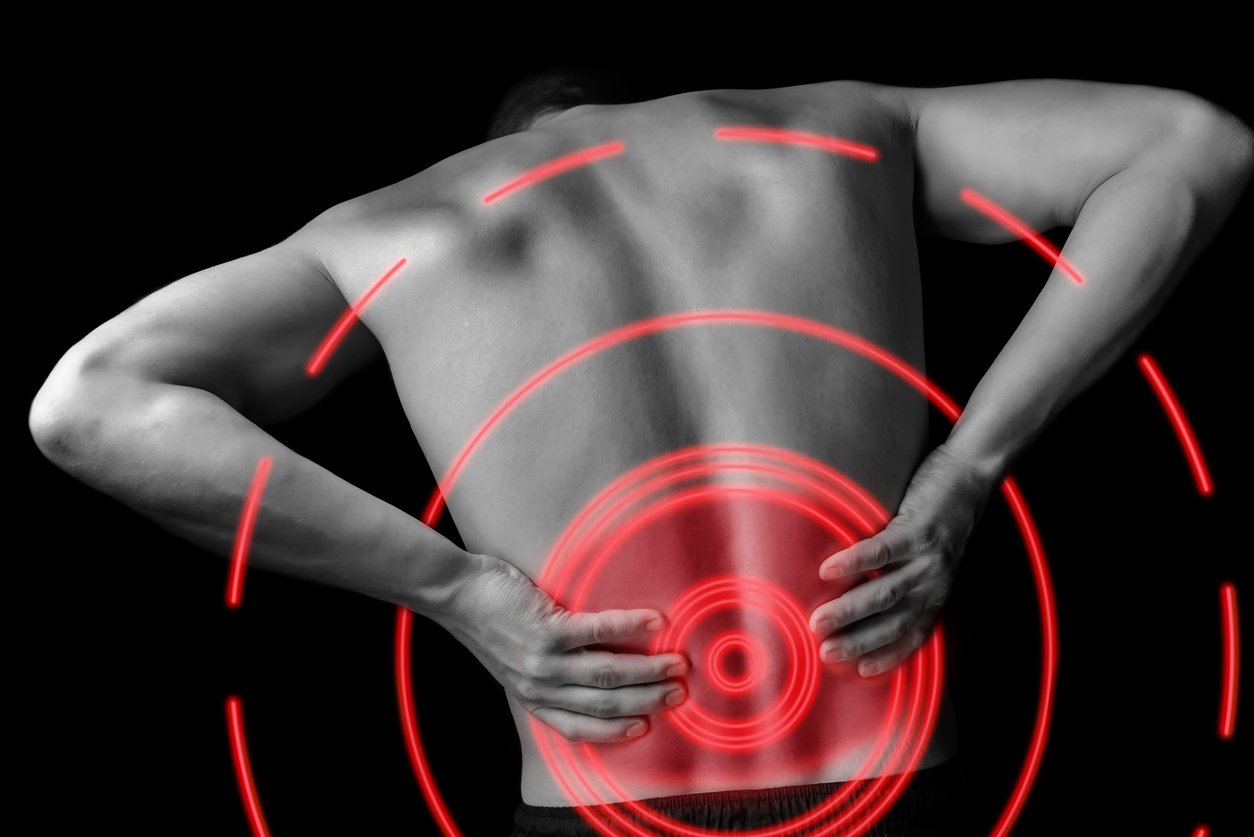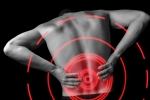
A stiff back can make it difficult to complete even the simplest tasks. So, of course, you want to figure out what is causing it, as this can help you find the right course of treatment.
To aid you on your pain-relief journey, here are 4 reasons you may have a stiff back:
1. Tight Hamstrings
Your hamstrings run through the back of each of your thighs. These large and powerful muscles can become tight for a number of reasons, including physical inactivity or a lack of stretching before and/or after working out.
You may be surprised to learn that tight hamstrings limit the motion in your pelvis, which in turn can increase the stress on your lower back and cause stiffness. Conversely, targeted hamstring stretching can gradually lengthen your hamstrings, and thereby relieve lower back stiffness.
2. Poor Sitting Posture
The majority of us spend over 8 hours per day sitting down. And this entire time sitting can take it’s toll on our lower backs if we are not diligent in regards to our sitting posture.
Common sitting posture mistakes include:
- Sitting on the edge of your chair
- Hunching forward towards your computer (not utilizing the lumbar support of your chair)
- Staring down and/or up at your computer screen
Some of the possible negative effects of these posture mistakes including the following:
- A strain on your lower back muscles
- Stress on your lumbar spine
- Changes to the anatomical structures of your spine over the long term (this can result in problems with your nerves, discs, or joints in your lower back).
3. Lumbar Herniated Disc
Often as a result of wear and tear, the outer ring of one of your lumbar discs may bugle or crack. This, in turn, can lead to lower back pain and stiffness when the gel-like inner material leaks out (or herniates) and affects nearby nerve roots. Or you may experience symptoms in the disc space itself.
Movement often aggravates stiffness and other symptoms in your lower back from a lumbar herniated disc. For example, you might feel more pain after you get up following a prolonged period of sitting (or perhaps following a laugh or sneeze). Additionally, hunching forward may also intensify your symptoms.
4. Facet Joint Osteoarthritis Can Lead to Back Stiffness
If you have a lower back stiffness that is a worse first thing in the morning and later in the evening, it may be caused by facet joint osteoarthritis.
Osteoarthritis can lead to back stiffness by causing the cartilage to break down between the facet joints in your lower back. As a result, your joints create more friction between one another, and as this limits your motion you often get stiffer and experience more back pain. This cause of back stiffness is most likely to occur in patients over 60 years old.
Don't become complacent when it comes to your stiff back, as ignoring the problem may only make it worse. Instead, work in tandem with your doctor to identify the cause and solution to your stiff-back problems.
To arrange an appointment with our Pain Management specialist, Dr. Jeffrey Chacko, please contact our office at (516) 419-4480 or (718) 215-1888.













